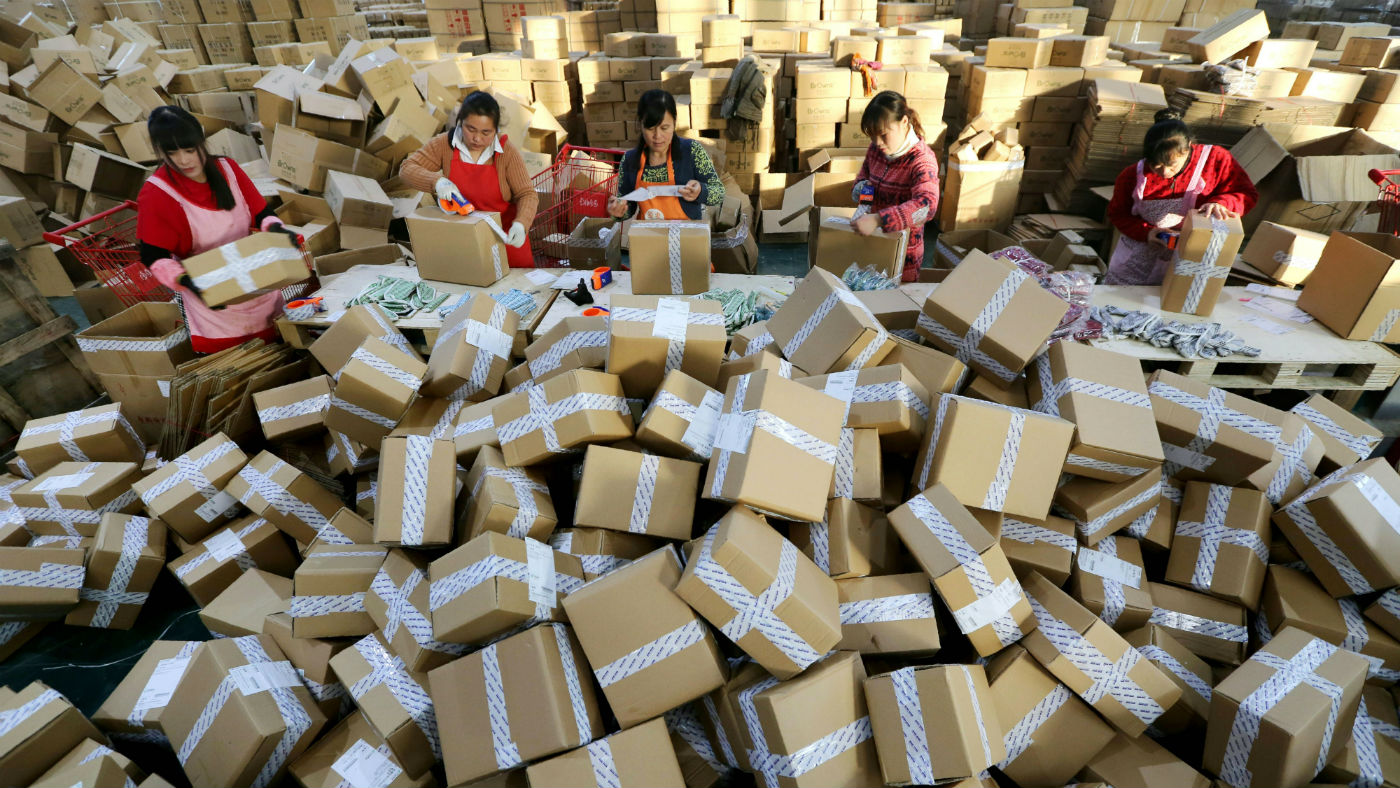Singles’ Day: China’s $25bn shopping spree
The world's biggest retail event also attracts its fair share of critics

A free daily email with the biggest news stories of the day – and the best features from TheWeek.com
You are now subscribed
Your newsletter sign-up was successful
Shoppers in China spent $25.3bn in a single day on Saturday, smashing previous records for the world’s largest retail event.
What is Singles’ Day and why is it so big?
Officially called the 11.11 Global Shopping Festival, Singles’ Day has been described by Forbes as “a combination of commerce, entertainment and an exuberant celebration of consumerism”.
The Week
Escape your echo chamber. Get the facts behind the news, plus analysis from multiple perspectives.

Sign up for The Week's Free Newsletters
From our morning news briefing to a weekly Good News Newsletter, get the best of The Week delivered directly to your inbox.
From our morning news briefing to a weekly Good News Newsletter, get the best of The Week delivered directly to your inbox.
Supposedly started by bachelor university students in the 1990s who bought themselves presents as a kind of anti-Valentine’s day, the date 11/11 was chosen for its collection of lonely ones.
Promoted by Chinese e-commerce giant Alibaba, which claimed more than a million retailers worldwide took part this year, including for the first time US department store Macy’s, each year on 11 November companies offer discounts on a range of products for a limited 24-hour period.
Alibaba often pays celebrities to promote the day, with Nicole Kidman, Pharrell Williams and Maria Sharapova appearing on stage in Shanghai this year to perform in a televised gala.
It appears to have done the trick after the e-commerce company saw sales rise 40% this year, an increase of $7.5bn on 2016.
A free daily email with the biggest news stories of the day – and the best features from TheWeek.com
Isn’t there a US equivalent?
Yes, but it’s nowhere near as big. Tech Crunch says the staggering scale of Chinese sales “puts America’s largest shopping days in the corner”. Retailers pulled in a record $3bn on Black Friday last year and then $3.45bn on Cyber Monday, which take place at the end of November ahead of the Christmas rush.
The difference is driven by China’s more than 500 million middle-class consumers. The total retail market was nearly $5 trillion in 2016 and by 2020, China will account for about 60% of global e-commerce.
“Even as China’s economy slows and consumer spending may be at its peak, for consumer products companies, if you win China, you win the world,” says Forbes.
Is everyone a fan?
Not everyone is convinced. The US Securities and Exchange Commission launched a probe in 2016 into how Alibaba calculates its sales figures while Greenpeace has called the day a “catastrophe for the environment”. It says the event produced 258,000 tonnes of CO2 emissions last year.
The Guardian reports that because of the army of logistics workers required to deliver million of orders, the day “has also been attacked for overworking both deliverymen and the stores that profit”.
It is, says Shanghai-based Sixth Tone news, “founded on a model of frenzied mass consumption that is unsustainable for global ecosystems - a crazed carousel of buying and selling that exploits some of China’s lowest earners while casting materialism as a salve for a lack of psychological fulfilment”.
But Taiwan-based Cindy Sui, writing on the BBC website, says Singles’ Day symbolises the transformation China has undergone over the past 30 years.
“Singles’ Day is a wakeup call for the rest of the world, especially companies wanting to sell to Chinese people,” she says. “They’ve got to do things the Chinese way if they want to win them over. China is no longer just following, it is leading the world in e-commerce and consumer engagement” she said.
-
 Bondi, Democrats clash over Epstein in hearing
Bondi, Democrats clash over Epstein in hearingSpeed Read Attorney General Pam Bondi ignored survivors of convicted sex offender Jeffrey Epstein and demanded that Democrats apologize to Trump
-
 Are Big Tech firms the new tobacco companies?
Are Big Tech firms the new tobacco companies?Today’s Big Question Trial will determine if Meta, YouTube designed addictive products
-
 El Paso airspace closure tied to FAA-Pentagon standoff
El Paso airspace closure tied to FAA-Pentagon standoffSpeed Read The closure in the Texas border city stemmed from disagreements between the Federal Aviation Administration and Pentagon officials over drone-related tests